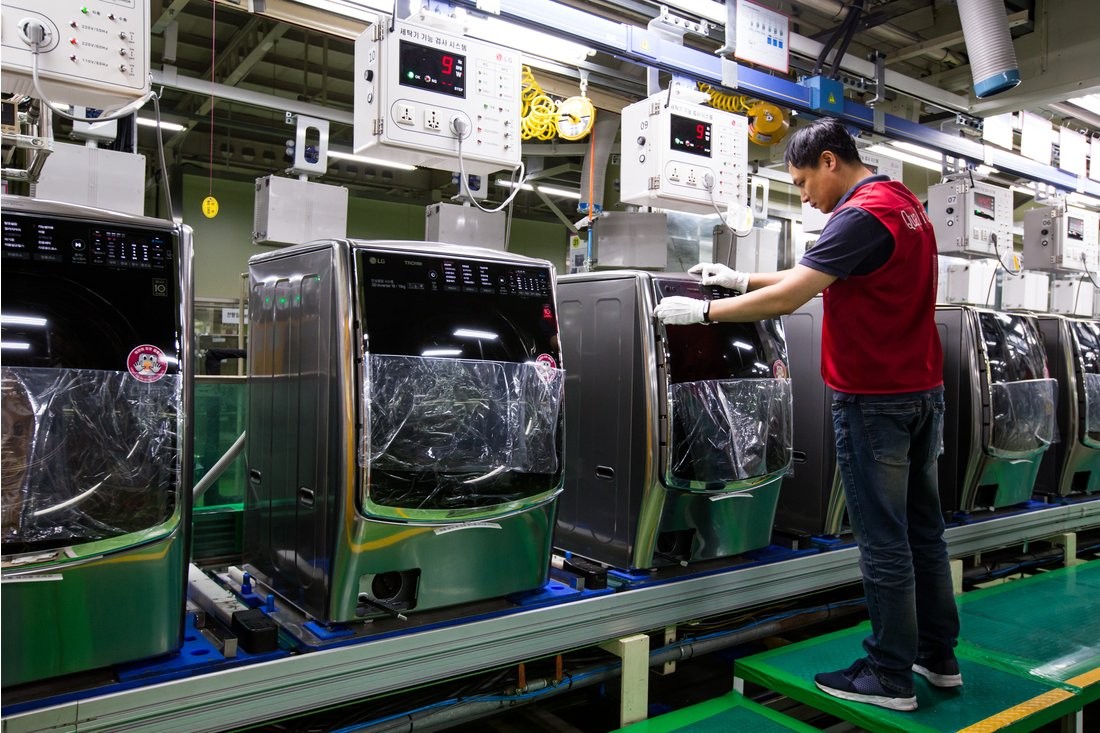特朗普关税新政:不会促进就业,只会加速美国衰退
|
美国总统特朗普已经决定对进口钢材和铝材加征关税了,这也标志着特朗普铁了心要开贸易保护主义的倒车。据《纽约时报》报道,这似乎也是特朗普首席经济顾问加里·寇恩本周宣布辞职的原因。 特朗普称,加征关税的目的是为了促进国内就业。批评人士则指出,因关税而毁掉的工作,将会比关税带来的工作还多。 两方的看法其实都不全面。关税不会改变美国就业市场的工作总量,它只会改变改变就业市场的结构,同时使我们变得更穷,经济效率更低下。 经典学派的自由贸易论者认为,当人们可以自由进行跨国贸易时,各国生产者会根据自身专长,生产对其来说最高效的产品。美国的钢铁产量在过去十年间下降了近20%,而进口钢材和铝材的数量相应增加,这表明美国资本和工人在其他行业获得了更好的就业和运用。 从总数看,贸易并不会带来工作,也不会毁掉工作,因为从钢铁或铝材行业的就业流失数,必然会被美国出口行业以及使用钢材、铝材生产产品的其他行业的就业增加数所抵消。同理,关税为钢铁和铝材行业创造的就业增加数,也必然导致出口行业以及使用钢材、铝材生产产品的行业(如汽车、建筑、啤酒、软饮等)的就业流失数所抵消。 总长期就业数很大程度上取决于劳动力市场的大小以及对劳动力市场的调节,所以所谓特朗普的关税政策会刺激或抑制就业的说法统统都是伪命题。关税政策真正会引起改变的,是美国劳动力市场的就业结构,和美国工业的产品结构。而此次的政策调整只会让这二者向不利于美国的方向发展。 |
President Donald Trump has, unfortunately, decided to deliver on his protectionist campaign promises by imposing tariffs on steel and aluminum. According to the New York Times, the tariff decision appears to have been the impetus behind the resignationof Trump’s top economic advisor, Gary Cohn, on Tuesday. The president claims tariffs create jobs. His critics say tariffs will destroy more jobs than they create. Both sides misconstrue the situation. These tariffs won’t change the total number of American jobs; they will change the mix of jobs in a way that will make us poorer and less productive. The classic case for free trade argues that when people are free to trade across national borders, the producers in each country will specialize in the products they make most efficiently. The fact that U.S. steel production has fallen nearly 20% in the last decade, while steel and aluminum imports have increased, indicates that U.S. capital and laborers are better employed in other industries. Trade neither creates nor destroys jobs on net, because the loss of jobs in a steel or aluminum industry that competes with imports is offset by job creation in U.S. export industries and other industries that use steel and aluminum in whatever they produce. Similarly, tariffs on steel and aluminum create jobs in those industries at the expense of jobs in export sectors and those that use steel and aluminum, such as the car, construction, beer, and soft drink industries. Total long-run employment is largely a function of the size the labor force and labor market regulations. So claims that Trump’s policies will either create or destroy jobs on net are bogus. Again, it’s the mix of jobs and what we produce in America that tariffs change—and in this case, that will be for the worse. |

|
今年一月,特朗普批准了对进口洗衣机征税,但其影响远远不如此次对钢铁和铝材加征关税的影响。在美国对进口洗衣机征税后,LG等洗衣机厂商立即提高了售价。可以想见,受此政策影响,不少美国厂商肯定会大量生产洗衣机,享受贸易保护政策的红利。然而这些资本和劳动力本来是可以用于生产其他更有价值的产品的。 虽然可能会带来一些不利影响,但洗衣机关税的负作用也是有限的,毕竟洗衣机是消费品,不是生产资料。而对作为生产资料的钢铁、铝材加征关税,会在整个经济中引起连带效应,在一个个行业造成劳动力和资本的错误配置。 首先,美国国内生产的汽车和易拉罐肯定会变少,同时企业家也会改变产品的生产方式,比如更多的可口可乐将用塑料瓶而不是易拉罐包装。这样一来,资本和劳动力就会向塑料行业转移,其他行业部门必然因此蒙受损失。加征钢铁和铝材关税所引起的此类调整或将数以亿次计,后果是难以估量的。 价格在任何市场经济中都起着关键的调节作用,它说明了资源的相对稀缺性,告诉企业家们如何组织生产才能创造最大的经济蛋糕。而钢铝关税则会扭曲价格结构,虚假抬高钢材和铝材的相对稀缺性。这样一来,任何需要用到这些材料或其替代物的生产过程都会变得更加昂贵,同时也更低效。 所以说,特朗普的关税政策不会导致美国经济的就业率下降,但它会使我们变得更穷和更低效。这是百害无一利的政策。(财富中文网) 本文作者Benjamin Powell是美国独立研究所研究员、自由市场研究所主任兼德州理工大学经济学教授。 译者:朴成奎 |
The steel and aluminum tariffs will be much more harmful than the tariffs Trump imposed on washing machines in January. Indeed, immediately after those tariffs were imposed, washing machine companies such as LG increased their prices. The tariffs will also result in the production of a few too many American-made washing machines, when we can better use that labor and capital to produce more valuable products. But even taking these consequences into account, the tariffs’ negative impact will be limited: Washing machines are consumer goods, not inputs for other products. On the other hand, steel and aluminum are used in other production processes. Tariffs on those goods will ripple through our economy, misallocating labor and capital in one industry after another. The U.S. will produce fewer cars and beer cans, but entrepreneurs will also change how products are made. More Coca-Cola will come in plastic bottles than in aluminum cans. That will shift labor and capital into the plastics industry at the expense of other sectors. These tariffs will cause literally hundreds of millions of such adjustments. Prices play the key coordinating role in any market economy, signaling the relative scarcity of resources and telling entrepreneurs how to organize production in a way that creates the largest economic pie possible. Steel and aluminum tariffs will distort the price structure by raising prices and indicating that steel and aluminum are more scarce than they in fact are. As a result, any production process that uses those materials, or their substitutes, will become more expensive and less efficient. No, Trump’s tariffs won’t cost the American economy jobs, but they will make us poorer and less efficient. There is nothing great about that. Benjamin Powell is a senior fellow at the Independent Institute, the director of the Free Market Institute, and a professor of economics at Texas Tech University. |













